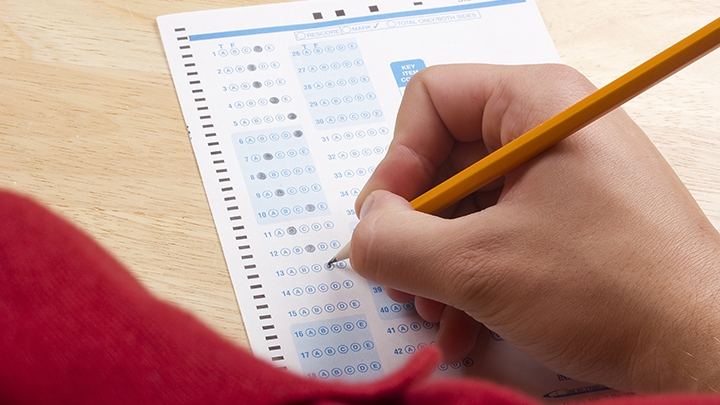5 Ways Artificial Intelligence Might Transform Assessment Practices
Assessment strategies are extremely important to educators. Our ideals of justice, effort, discipline, and the fundamental goal of education inform the methods we pick. This frequently sparks passionate discussions about issues like assigning group projects, grading on a curve, and more. Nevertheless, despite divergent opinions on the specifics, most teachers agree assessment serves a few core functions:
Evaluating individual student mastery and providing personalized feedback
Gauging whole-class progress to shape instruction
Empowering learner self-awareness of strengths and growth areas
Top 5 AI-Driven Changes Coming to Assessment
1. Less Grading and More Assessment
AI promises to assist with assessment processes that currently require tedious manual effort from educators.Initial student entry exams in certain subjects require hours of one-on-one interaction, which can be stressful and time-consuming for staff. But AI tools utilizing speech recognition and natural language processing can help automate these intake assessments.
For instance, a student could take the introductory reading fluency test with an AI instructor. Students would engage with the intelligent system and get real-time benchmarking and scoring information. This frees up teachers to devote their resources to high-value activities rather than tedious drills, such as small group instruction, student conferences, and relationship development. When AI handles routine assessments, educators can customise interventions and groupings using frequently updated student data.
The crucial point is that in the assessment process, AI enhances teacher expertise rather than replacing them. Teachers still have control over how students are taught. However, AI lightens the load of tedious evaluation tasks that are prone to human tiredness or mistakes. In addition, AI offers extensive insights. This enables teachers to focus on the essential relational and emotional aspects of learning. Schools can benefit from both automated rigour and human nurturing by using AI assessment support.
2. Accelerating Feedback with AI Assistance
In education, quick feedback plays a pivotal role. When learning new abilities, students repeat incorrect techniques, which causes undesirable habits to develop between exercise and correction. Delays in providing feedback on mistakes in the classroom run the risk of misunderstandings taking root. If the areas of strength and improvement are not made evident to some students, they can lose interest.
Fortunately, AI promises to offer significantly quicker evaluation and feedback. Automated writing tools may quickly analyse student compositions, highlighting critical areas for improvement and offering unique revision recommendations. Problem-solving conceptual errors can be identified by maths instructors, allowing for targeted reteaching.
Although increased acceleration is good, safety measures must still be taken. Too quickly identifying and fixing faults could stifle productive conflict. Keeping up with difficulties also develops grit and agency. AI should improve controlled conflict possibilities rather than replace them.
When quick AI feedback becomes predictive, foreseeing possible problems in advance so they can be avoided, its true power is shown. Education systems may use data to notify teachers and students to at-risk regions and provide guidance before examinations, similar to how AI currently alerts us about spelling errors as we type.
3. Predictive Analysis in Education
In educational assessments, machine learning is particularly good at identifying trends, which may be utilised for predictive analysis.
Predictive Analysis
Adaptive Learning
AI can be used to generate individualised learning plans that are based on each student's particular needs, skills, and interests utilising data analytics. AI systems can predict which assignments and learning paths will be most effective for a particular learner by looking at their past performance, learning preferences, skill development and other factors.
Spotting At-Risk Students Early
AI can identify children who might fall behind or think about quitting school by reviewing data like attendance and grades. This early detection enables educators to step in and offer assistance more quickly.
Adaptive assessments
AI can change the difficulty of upcoming questions based on a student's responses. This makes sure that every student is evaluated properly and experiences difficulties appropriate to their ability.
Predictive modelling
AI can forecast the factors that influence a student's success or failure by using prior performance data. This supports instructors in making decisions that will improve student outcomes.
This individualized approach ensures that every learning opportunity is fruitful, interesting, and appropriately paced to enable students to realise their full potential.
4. Making Assessments Work for All Learners with AI
Right now, creating different tests for students who need easier or harder versions takes up a lot of teacher time. But new technology called AI could help make this easier.
AI programs can create custom quizzes and tests tailored to each kid's skills. The questions get harder or easier based on how the student is answering in real-time. This helps teachers understand exactly what each student knows and is ready to learn next.
For students learning English, AI can adjust the wording on tests to be simpler by using easier words and sentences. This makes it more fair for them.
Teachers can have AI create a first draft of custom tests focused on goals in a student's IEP. Then teachers can review the test and make changes so it fits that student perfectly.
While AI can help make differentiated tests faster, teachers still need to double check them. But AI does save teachers time that they can spend working directly with students instead of on long test prep. Students get assessments that match their needs.
5.Empowering Students to Own the Assessment
Assessments have historically been used as a technique by instructors to determine how well their students understood the subject matter. Typically, they were top-down, with professors establishing the rules and students passively complying. It is becoming increasingly important to involve students more actively in their own assessment procedures, though, as the educational landscape changes.
Let's understand the actual meaning of empowering students to own the assessment.
This trend towards giving students more control over their assessments is actually a necessary change in how we approach education and assessment.
Follow for more: https://www.hellosmartpaper.com/post/artificial-intelligence-might-transform-assessment-practices










